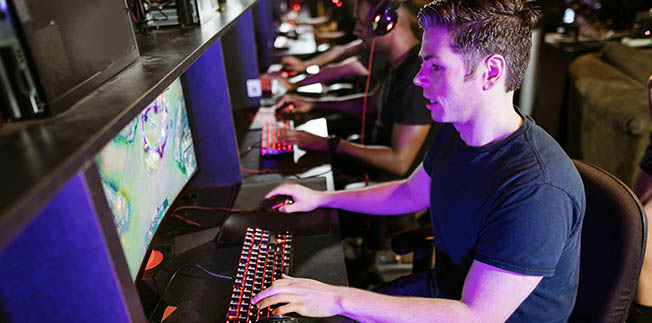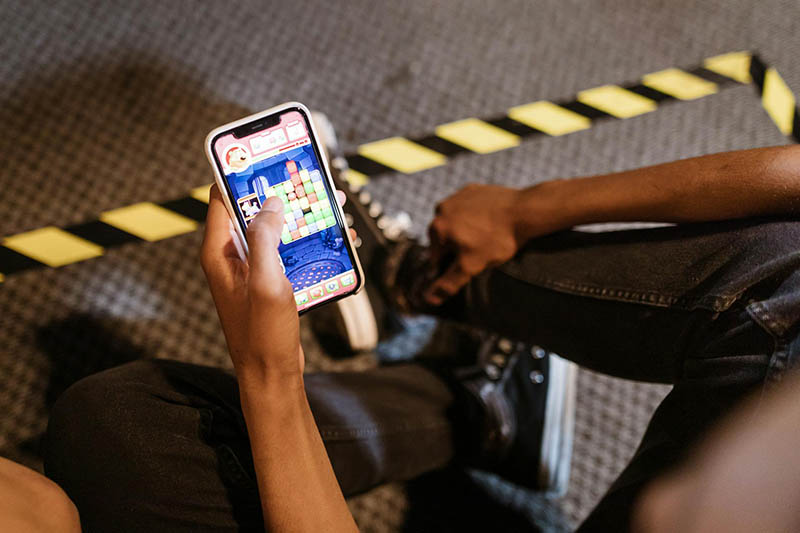
Indonesian Game Localization: Boosting Engagement and Revenue
Since PUBG Mobile was released in Indonesia in 2018, this free Battle Royale genre video game from China has skyrocketed to become one of the top mobile games in Indonesia, played by 100 million monthly active users. One of the keys to this great achievement is effective Indonesian game localization.
Localization not only allows your game product to meet the cultural preferences of local players and encourage early adoption, but it is also important for boosting ongoing engagement. To understand the ins and outs of game localization in the Indonesian market, read this post to the end!
Overview of the Indonesian Game Market
The potential of the gaming industry in Indonesia has increased significantly. The hype of mobile games and cloud gaming in Indonesia is proof. When many sectors in Indonesia fell drastically during the pandemic, the gaming industry, which experienced rapid growth, became one of the pandemic winners in 2020.
The current position of the Indonesian games industry can be taken into account in the international market. Indonesia is the third largest mobile game market based on downloads on Google Play, with Indonesian mobile game user transactions estimated to reach 370 million US dollars (around IDR5.6 trillion) or an increase of around 15.6% from 2022 (via IAP).
Based on data from Statista Kompas.id, total revenue from the gaming market in Indonesia in 2024 is estimated to reach 505.44 billion US dollars, with an average annual growth (CAGR) of 8.74%, or 649.8 billion US dollars in 2027.
This shows that interest in mobile games in Indonesia is very high, so there is a big opportunity for local and international game developers to grow significantly in this market through Indonesian game localization.
Although this achievement is promising, the development and achievements of games in Indonesia do not only reach the mobile games sector. Cloud gaming platforms are predicted to become the newest trend in the gaming industry in Indonesia in 2024.
Cloud gaming is a technology that allows users to play games without downloading or even installing them on their smartphones. Although the development of the cloud gaming industry is still in its early stages, this trend is expected to gain momentum in Indonesia in the next few years.
Another interesting fact is that the development of the cloud gaming industry in Indonesia can be seen last year, especially in several popular local games on the Steam platform. According to the Tourism & Creative Economy Outlook 2023/2024, four local games in Indonesia show positive performance during 2023.
Three of these games are Coral Island, A Space for Unbound, and Coffee Talk Episode 2: Hibiscus & Butterfly. These games are estimated to rake in more than 3.2 million USD in revenue.
Benefits of the Gaming Landscape in Indonesia for Boosting Engagement

One of the main benefits of the gaming landscape in Indonesia is its audiences. Gen Y (millennials) and Gen Z cover around two-thirds of the gaming target market in Indonesia. This number is very significant because these two generations have different preferences and behaviors, allowing local and foreign developers to target various market segments.
Both generations are dynamic and constantly seeking new experiences. They prefer to interact with technology and are more open to innovation, so they are more easily encouraged to try various types of games.
From action games like Mobile Legends: Bang Bang and Free Fire, through casual games such as Candy Crush Saga, to strategy games like Clash of Clans, or adventure games like Roblox and Genshin Impact—whatever game genre you develop can grow and boost engagement with the right Indonesian game localization strategy.
Is it True That Indonesian Game Localization is Important?
Game localization is very crucial in the Indonesian games industry. Here are some reasons why game localization is so important:
- Overcoming Language Barriers: Language localization is an attempt by game companies to enter the Indonesian market, where most of the population is not fluent in English. In this way, the company can reach a wider audience and improve the quality of the national online gaming industry.
- Improving Industry Quality: Implementing data localization can improve the quality of the national online gaming industry. This helps improve performance and gaming experience for local users.
- Industry Growth: Localization of game content is one of the keys to the growth of Indonesia's digital industry. With localization, companies can customize games based on regions, reach a larger audience, and improve the gaming experience for local users.
- Promising Market: Indonesia has a large and diverse gaming market, with increasing trends in in-game purchases and digital game downloads. Localization of games helps companies to exploit this market more effectively.
Key Considerations to Succeed in the Indonesian Game Localization
To penetrate the Indonesian gaming industry, several key considerations can greatly influence the success of your product localization. Here are some detailed considerations to help you succeed:
Consider the Language
Language plays an important role in attracting the interest of Indonesian gamers. While English is widely understood, especially among urban gamers, using Indonesian can increase the accessibility and appeal of your game. Especially, if you are developing a casual game, local players prefer if the game comes in their native language for a more immersive gaming experience.
Because casual games often convey simplicity and humor, the use of local languages can strengthen these components. For example, "Duel Otak", a quiz game developed by FEO Media AB from Sweden was ranked first in the free games category of Google Play Store Indonesia in 2015.
The developer provided an Indonesian language option in the game which then became very viral because it succeeded in attracting the attention of Indonesian gamers.
Local Tastes
Indonesian game localization can increase your opportunity to boost the engagement of Indonesian players if you present elements that suit their tastes and expectations. Because local culture has a bang on brand preferences and loyalty.
Game developer Moonton understands this well. One of the games, Mobile Legends: Bang Bang (MLBB), which is very popular around the world, presents hero characters adapted to the culture of its target market, such as Gatotkaca which is inspired by wayang stories in Indonesia, Lapu Lapu which is taken from heroic stories in the Philippines, and Hayabusa which is taken from the figure of the leader of a ninja clan from Japan. Each character has its own characteristics, both in terms of visuals, weapons, and skills.
Local Regulations
For your Indonesian game localization efforts to be successful, you may need to remove or adapt sensitive content. Because Indonesia is known for its deeply rooted Eastern culture, especially with its large Muslim population. If your product does not conform to local regulations regarding content deemed inappropriate, such as sexual themes, smoking, or alcohol, it could negatively impact your acceptance.
One example of Indonesian game localization that shows the need to consider local regulations is the Mario Kart Tour from Nintendo Co. In the Japanese version, this game attributes two characters drinking champagne after winning a race. Indonesian government policy does not allow depictions of alcoholic beverages in-game content, requiring changes and adjustments to the animation.
How to Get High-Quality Indonesian Game Localization?
If you want to gain benefits from the fast-growing Indonesian games market and be well-received by local players, you need to implement best practices to improve the quality of your game localization:
Localize From Scratch
To achieve high-quality localization of Indonesian games, it is important to have a localization plan from the start of the game development process. This involves separating the content from the code and making your game adaptable to longer character counts, messages, tone, fonts, formats (date, number, measurement), and monetization systems. Also, ensures stakeholder involvement and enables technical inclusion that accommodates language and cultural nuances.
Involve an Indonesian Game Localization Agency
For authentic localization results, make sure you have a professional Indonesian language expert on your team. If you don't have one, then working with an Indonesian game localization agency is very important. Choose a localization agency with in-depth game terminology with a team of native Indonesian translators who understand the game market and regulations in this country and provide a localization quality assurance (LQA) system.
Take Advantage of Translation and Localization Technology
The use of the latest localization technology is very important to adapt video games into Indonesian quickly and easily. Some of them are Phrase and Xbench which can help improve the efficiency and quality of translation results, as well as make it easier for users to translate complex texts.
Localize App Store Descriptions
In addition to in-game localization, localizing your app store description can also help your game to be discovered by more users in the local market. Considering that the total downloads of applications on the App Store and Google Play by Indonesian users were recorded at 7.1 billion throughout 2020, you can take advantage of this golden opportunity to expand your reach. Wider reach in the Indonesian market can boost your player base, driving downloads and purchases, which in turn can generate tremendous revenue.
Conclusion
In short, you need experienced and expert game localization services if you want to drive local player engagement and revenue in Indonesia's lucrative gaming industry. Digital-Trans Asia is an Indonesian game localization company that provides comprehensive services, ranging from UI customization, in-game translation, translation with the help of professional technology, a team of native language experts, app store descriptions, testing, etc.